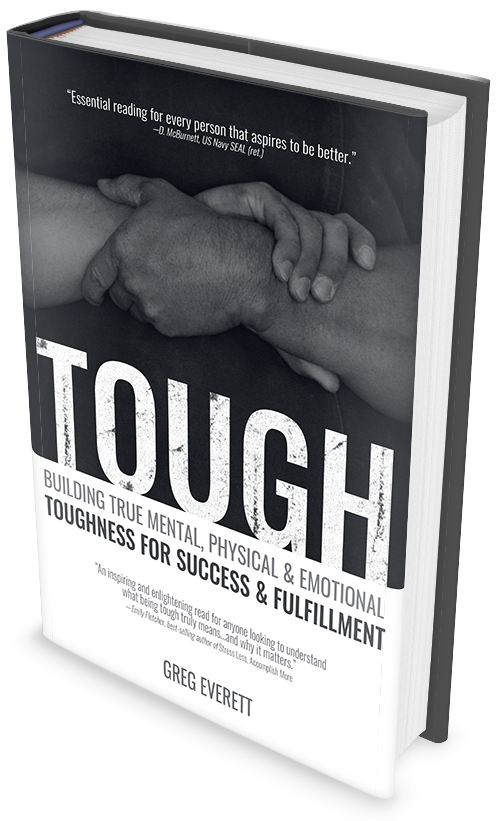We’re naturally influenced by the natures of those we spend time with, from attitude to habits to manner of speaking to perspective on the world. The more time we spend with given people, the greater that potential influence—this is made obvious by how we tend to think and behave similarly to our families. Jim Rohn famously said, “You’re the average of the five people you spend most of your time with.” Of course to actually be accurate, that would require you spend identical amounts of time and engaged in the same type of activity with each person. It also implies that we have absolutely no identity of our own and are completely shaped by outside influences. But the fundamental idea he was trying to communicate is sound—we need to choose whom we spend our time with wisely, because it has the potential to influence who we are.
Average athletes want to always be the best in the gym or on the field today; the most motivated and dedicated athletes want to train with athletes better than they are. These athletes understand that training alongside superior counterparts will provide the kind of influence that will drive their own progress, from feeling inspiration, to fueling their natural competitiveness, to learning better methods and mental habits. These athletes don’t want to just be the best on one field right now—they want to eventually be the best in the world.
Unfortunately, few of us can entirely control whom we spend our time with. Our professions typically dictate whom we’re around for many if not most of our waking hours, and often these are far from the inspiring, positive models we’d prefer. Rohn’s idea could be seen to imply that we’re largely helpless with regard to self-determination—that we’re simply amorphous blobs waiting for others to mold us into distinctive shapes. If we determine our own character and reinforce that identity through our choices, we’re perfectly capable of defending against the contrary influences of anyone around us, regardless of the time we’re forced to spend with them. If we maintain the level of self-awareness we already know is necessary, being surrounded by influences out of line with our character has relatively little impact beyond the mental fatigue accrued through the vigilance to resist it. For the tough, whom we choose to spend our time with is more about intentionally fortifying our identities and accelerating our personal development than avoiding contrary influences against which we’re helpless—we’re seeking the positive to build, not avoiding the negative to prevent decay.
Our willing acceptance of complete responsibility for ourselves includes the preservation of our character in spite of any outside influences other than those we’ve chosen to expose ourselves to for reinforcement or positive impact. Further, rather than being passively battered by others’ influence, we have the choice to be the overwhelming influence ourselves. Attitude, mindset, behavior and mood in any community are only democratic among the submissive of the group. Someone has to establish these things for everyone else to accept—they don’t spontaneously materialize. We can complain about who we’re forced to spend our time with because of their negative influence, or we can recognize our own agency and become the model by which others are influenced. This not only diminishes the negative influence, but fortifies support for our character and goals—and in the process, we’re helping others escape their own self-defeating mindsets.

